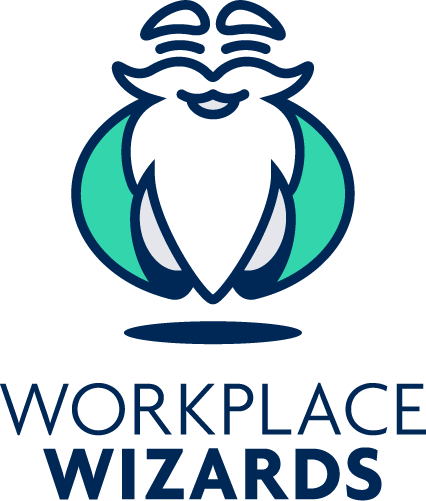The tail-end of National Safe Work Month (NSWM) sees a discussion about the development of new work designs. More specifically, NSWM’s fourth and final week focuses on the impacts of inevitable changes to job landscapes as well as newfound hazards which may arise out of task automation.
As we’re (hopefully) on our way out of the COVID-19 pandemic, health and safety has never been more important. We can see that employers are already placing more emphasis on occupational health and safety (OHS) procedures and employees are more inclined to opt for a safer workplace.
This article will discuss the various forecasts that experts have aired about how the world’s work landscape will change over the coming years and educate businesses on ways to proactively prepare for the future of work. It’s essential for employers to remain ahead of the curve and ensure safety is a top priority to ensure businesses thrive.
WHAT DOES THE FUTURE OF WORK LOOK LIKE?
The Creation & Deletion of Jobs
The creation and deletion of jobs has been a constant fear of jobseekers since the dawn of time with people asking themselves –
- Which industry should I work in to make sure I’ll always have a job?
- How can I learn new skills so that I’m not made redundant?
- What can I do to innovate my position in the company?
It’s an inescapable truth that job markets will be ever-changing as long as there are emergences of new industries, interests and technologies. Jobs are often removed from the working ecosystem due to the occupation’s conversion to automation. Take the automotive industry in Australia, for example; many jobs have migrated overseas as the output is more efficient and costs tend to be cheaper when they’re performed by machines.
However, although jobs may be removed from the workforce, the general trend shows there are actually more jobs being created than there are being deleted. This demonstrates there are opportunities out there, but workers aren’t taking advantage of them.
Physical Inactivity
Screen-based work also presents a real hazard for workers which is often overlooked. This is partly due to sedentary behaviour which includes anything you do while you are sitting or reclining. The consequences of this, according to WorkSafe Queensland include:
- cardiovascular disease;
- diabetes;
- obesity;
- poor mental health; and
- musculoskeletal disorders and discomfort.
Artificial Intelligence (AI) and Automation
Artificial intelligence and automation present an enormous opportunity to improve the safety of the workplace. Automating repeatable tasks and taking people out of hard-to-be-in environments will create great OHS standards for workplaces – the safety gains in this space, both physically and psychologically, are real. There is, however, a risk that workers will lose touch with the basic skills required to perform their jobs and may not be experienced in problem-solving where machines fail.
Decline in Demand for Low-Skilled Jobs
Technology and societal advancement have seen jobs requiring a higher skillset, with low-skilled jobs being deleted from the market. For example, most jobs require digital literacy now and have a white-collar feel, as opposed to the previously all-encompassing blue-collar jobs.
Increase In Demand for People-to-People Skills
With the rise in technology-driven interactions, people-to-people skills are beginning to be overlooked by workers. Skills like leadership, communication, decision-making, teamwork and client/customer interaction are vital for business development – none of which will be replaced by robots.
There’s no denying that people skills will always be a necessary part of working life. These are the things we, as people, are good at and they’ll come more to the forefront when automation is heavily relied upon.
Adapting Work Design to Account for Psychosocial Hazards
Work design will unavoidably change what work looks like for each of us. Although it may be a gradual change, it’s a good idea to ensure you’re starting to adapt the way you and your business works and to consider any increases in the propensity of psychosocial hazards. 91% of employees in a 2021 report said it’s important that company culture supports mental health – it’s not only important, but expected by people that work design adjusts to suit their personal needs.
The Virtual Workplace
There has been a strong rise in co-working spaces for professional industries where people gather to work. The positives from this include:
- changing how people view their work through a change of scenery;
- harnessing new ideas from outside their own discipline and company;
- giving employees a fresh perspective on their work; and
- a better appreciation for other industries.
Hierarchical structures in the workplace may also be going through changes. Heavy-duty hierarchy structures tend to have higher levels of stress among workers. Although hierarchical structures serve a purpose, businesses may need to start think about challenging some of those more traditional models.
When working from home, it’s hard to separate yourself from work as you’re working in the same space you’re living. Working remotely may isolate people from their colleagues, leading to an inability to develop strong interpersonal skills or connections with fellow workmates.
Duties of an Employer when an Employee is Working from Home
There is still a lot of speculation around an employer’s duty to employees working from home which remains unresolved. This dilemma has prompted questions like:
- Do employers need to ensure the worker has an ergonomic chair?
- Is it the employer’s responsibility to mitigate any WFH risks associated with safety and health?
- What can an employer regulate and is it their responsibility to do so or does that fall on the employee as it is not a company-owned or regulated space?
It’s hard to know the solutions to these problems, but it’s good to think about how the answers might change the work landscape across Australia in the coming years.
HOW CAN I PREPARE FOR THESE CHANGES?
Embrace it
The best way to get ahead of the curve and be prepared for a changing job market is to be positive about it and embrace it! You never know, it might make you a better worker, expose you to new opportunities and prove to be something you enjoy more than a position you’ve worked in for years.
Look inward
Have a look at your existing talent pool and think of ways they can adapt their current skillsets and tasks to re-skill them in positions which might be more beneficial and suitable to the changing needs of your business. Or, better yet, think about how your business can expand into developing areas which might mean more profit and better outcomes generally for your business!
People-to-people skills training and evaluation
Strat properly training your employees to hone their people skills. They should be learned, assessed, rewarded and maintained.
Upskilling
It’s a cliché, but it’s true! If you have the time and resources, why not study or learn something you’re passionate about to anticipate a move to a growing industry or expand your knowledge in the industries you already know like the back of your hand.
Facilitating fitness and mental health benefits for employees
It’s vital to ensure workers are getting enough movement. Employers can facilitate this by providing access to standing desks for employees and advertising the health benefits of these small changes. A dynamic workspace is key to ensuring workers are happy.
It’s equally as important that employers place emphasis on mental health strategies. Start making this a top priority and offer access to mental health services to your employees. Workplace culture can change at any given time without notice, so keep on top of it before it becomes too costly to overhaul.
GOT QUESTIONS ABOUT HOW TO STAY AHEAD OF THE CURVE? REACH OUT!
Workplace Wizards are trained workplace relations specialists. Reach out to us today for help with adapting your work design and staying ahead of the curve in an ever-changing OHS environment!
For more information on what we can do for you, give us a ring on (03) 9087 6949 or, alternatively, email us at support@workplacewizards.com.au for advice!



0 Comments Leave a comment
Comments are closed.